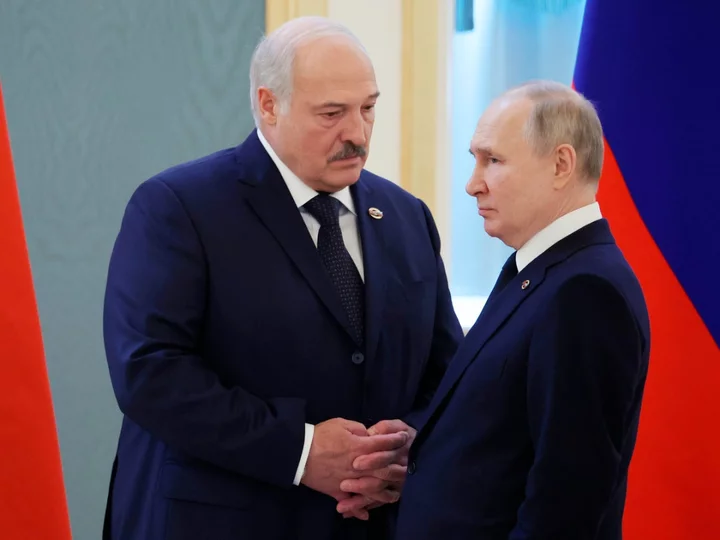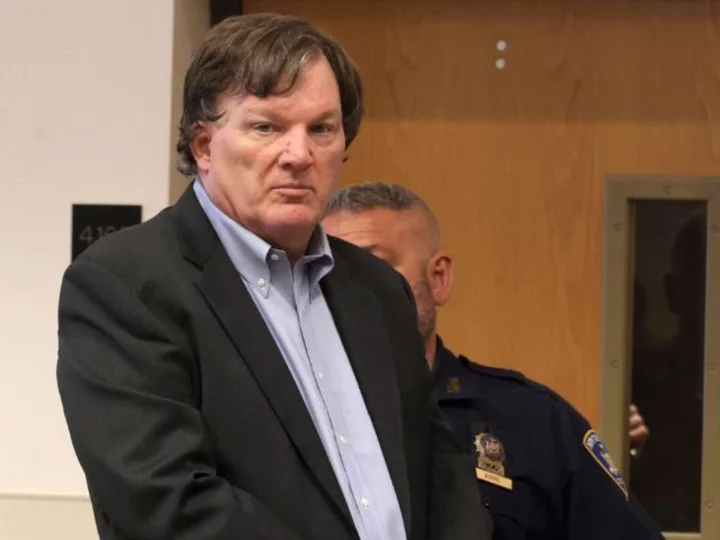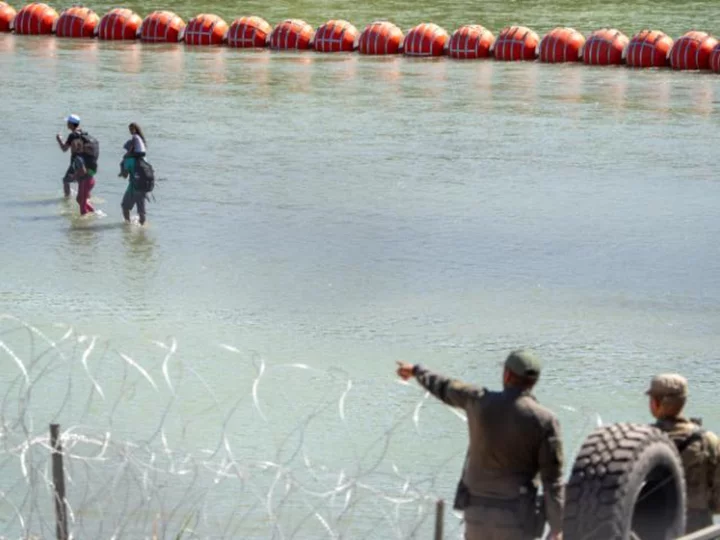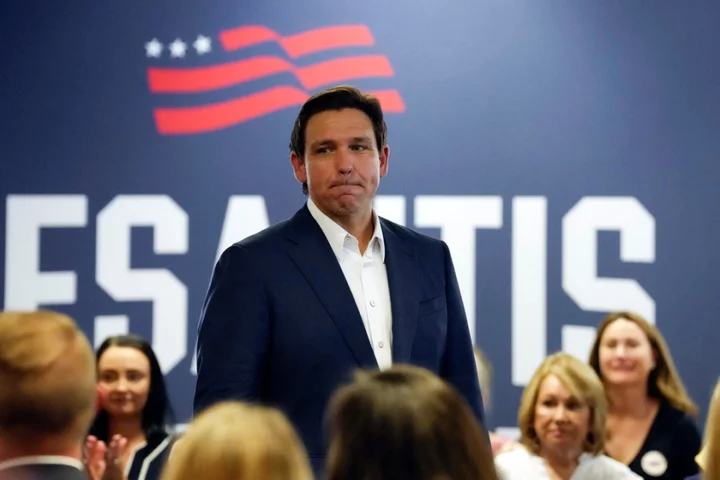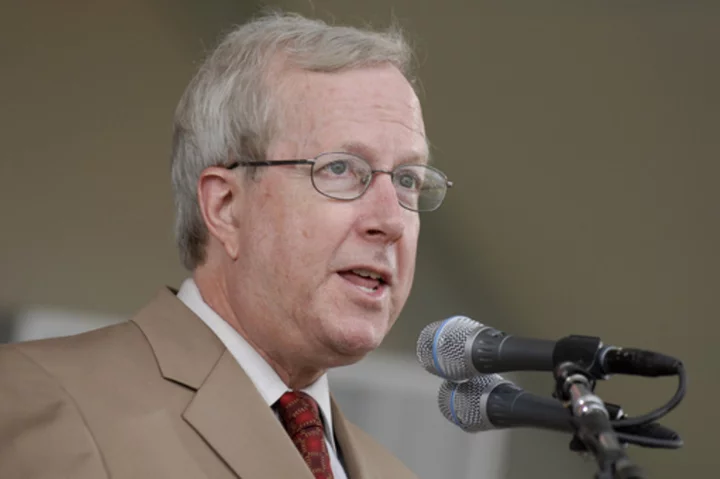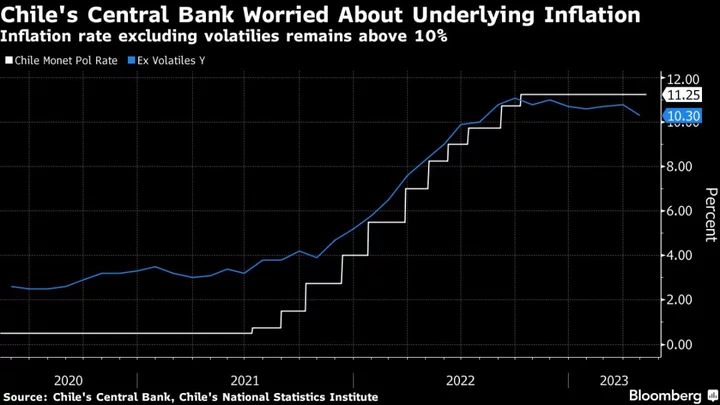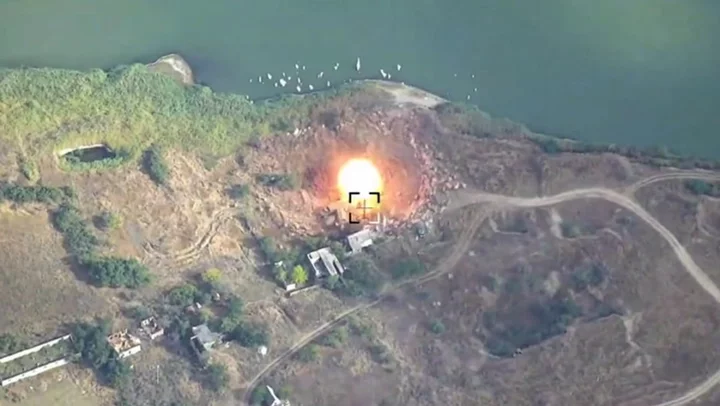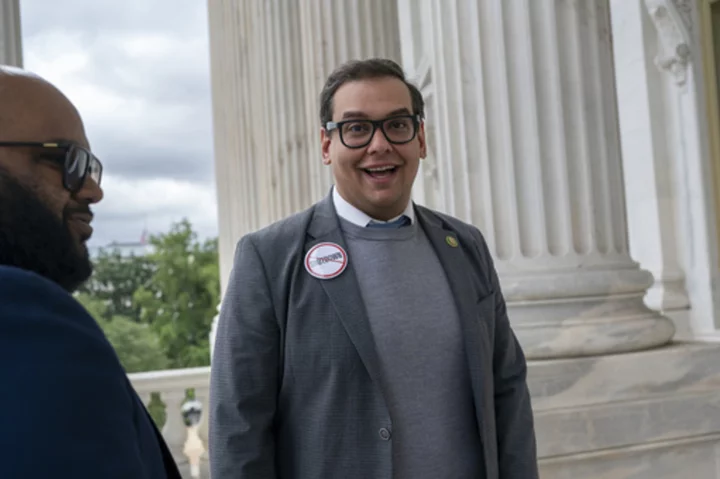Belarusian President Alexander Lukashenko has said that he he warned the Wagner mercenary chief, Yevgeny Prigozhin, to "watch out" for threats to his life before the plane crash said to have killed him.
Mr Lukashenko helped broker a deal between Mr Prigozhin and the Kremlin that ended an attempted mutiny by Wagner forces against Moscow in June – an uprising that marked the most significant challenge to Mr Putin's authority in more than two decades in power. Two months to the day after that revolt was halted, with fighters 125 miles from the Russian capital, a plane believed to be carrying Mr Prigozhin and a number of other members of Wagner's senior leadership crashed on Wednesday evening.
Mr Putin had called the Wagner mutiny treason, and had initially vowed to crush it, and a number of world leaders have suggested that he would not let the embarrassment of that incident stand.
Mr Lukashenko said on Friday that Mr Prigozhin had twice dismissed concerns raised by the Belarusian leader about possible threats to his life. Mr Lukashenko said that during the mutiny he had warned Mr Prigozhin that he would "die" if he continued to march on Moscow, to which he said Mr Prigozhin had answered: "'To hell with it - I will die'." Then, Mr Lukashenko said, when Mr Prigozhin and his right-hand man, Dmitry Utkin, who was also listed as a passenger on the plane which crashed, had come to see him, he had warned them both: "Lads – you watch out".
Mr Lukashenko said that the Wagner leader had never asked him for security guarantees. "I don't have to ensure Prigozhin's safety... the conversation was never in that vein."
It was not exactly clear from Mr Lukashenko’s words, which were reported by state news agency BELTA, when that conversation took place, Reuters reports. Mr Lukashenko has previously claimed that he persuaded Mr Putin not to "wipe out" the Wagner leader.
US officials, speaking to American media, have suggested that a preliminary US intelligence assessment concluded the plane was downed by an intentional explosion. One of the US and Western officials who described the assessment to the Associated Press said it determined that Mr Prigozhin was “very likely” targeted and that the explosion falls in line with Putin’s “long history of trying to silence his critics.”
The Kremlin rejected that assessment on Friday, falling back on a regular refrain for Moscow that it is the West that are the root of the problem. “Right now, of course, there are lots of speculations around this plane crash and the tragic deaths of the passengers of the plane, including Yevgeny Prigozhin,” Kremlin spokesperson Dmitry Peskov said during a conference call with journalists. “Of course, in the West those speculations are put out under a certain angle, and all of it is a complete lie,” he claimed. On Thursday, Mr Putin appeared to eulogise Mr Prigozhin, calling him a “great businessman”. But he also said that the the Wagner leader had made “serious mistakes” in his life and had a “complicated fate”.
A close ally of Mr Putin, the Belarusian president said that he believed the plane crash was “just too rough and unprofessional a job” for the Russian leader to be involved. “I know Putin: he is calculating, very calm, even tardy,” Lukashenko said. “I cannot imagine that Putin did it, that Putin is to blame.”
The jet crashed soon after taking off from Moscow for St. Petersburg, carrying Mr Prigozhin, six other Wagner members and a crew of three, according to Russia's civil aviation authority. Rescuers found 10 bodies, and Russian media cited anonymous sources in Wagner who said Mr Prigozhin was dead.
As part of the deal to end June's mutiny, Mr Prigozhin was due to set up in Belarus, with any Wagner fighters that wanted to join him. While the mercenary leader appeared to be able to travel freely, thousands have his fighters have travelled to Belarus, and have been training Belarusian soldiers near the border with Nato-member Poland. Warsaw has moved thousands of its own troops to its border in response.
Britain's Ministry of Defence said on Friday that it was "highly likely" Mr Prigozhin was dead and that his death "would almost certainly have a deeply destabilising effect" on Wagner, with the reported deaths of Mr Utkin and logistics chief Valery Chekalov compounding a "leadership vacuum",
Mr Lukashenko said Wagner fighters would remain in Belarus. "Wager lived, Wagner is living and Wagner will live in Belarus," the president said. "The core remains here."
"As long as we need this unit, they will live and work with us," he said.
Elsewhere, on the battlefield in Ukraine – which has been subject to Russian invasion for 18 months – there was a significant attack on Russian-occupied Crimea involving dozens of drones. Russia's Defence Ministry said that 42 drones had been shot down over Crimea and 73 as a whole across across the last 24 hours.
The attacks were the latest in a surge of similar incidents in recent weeks. Ukraine has said that destroying Russia's military infrastructure helps a counteroffensive than Kyiv began in June. President Volodymyr Zelensky told an international conference this week that Kyiv would "de-occupy" Crimea. Ukrainian military intelligence said it had assisted the navy this week in a "special operation" in which they landed units on the western tip of Crimea, had a firefight with Russian forces and raised a Ukrainian flag.
Associated Press and Reuters contributed to this report
Read MoreThe Body in the Woods | An Independent TV Original Documentary
The harrowing discovery at centre of The Independent’s new documentary
What next for the Wagner Group in Russia?
Who is Yevgeny Prigozhin? Wagner chief presumed dead in plane crash
What is the Wagner mercenary group led by Yevgeny Prigozhin?

